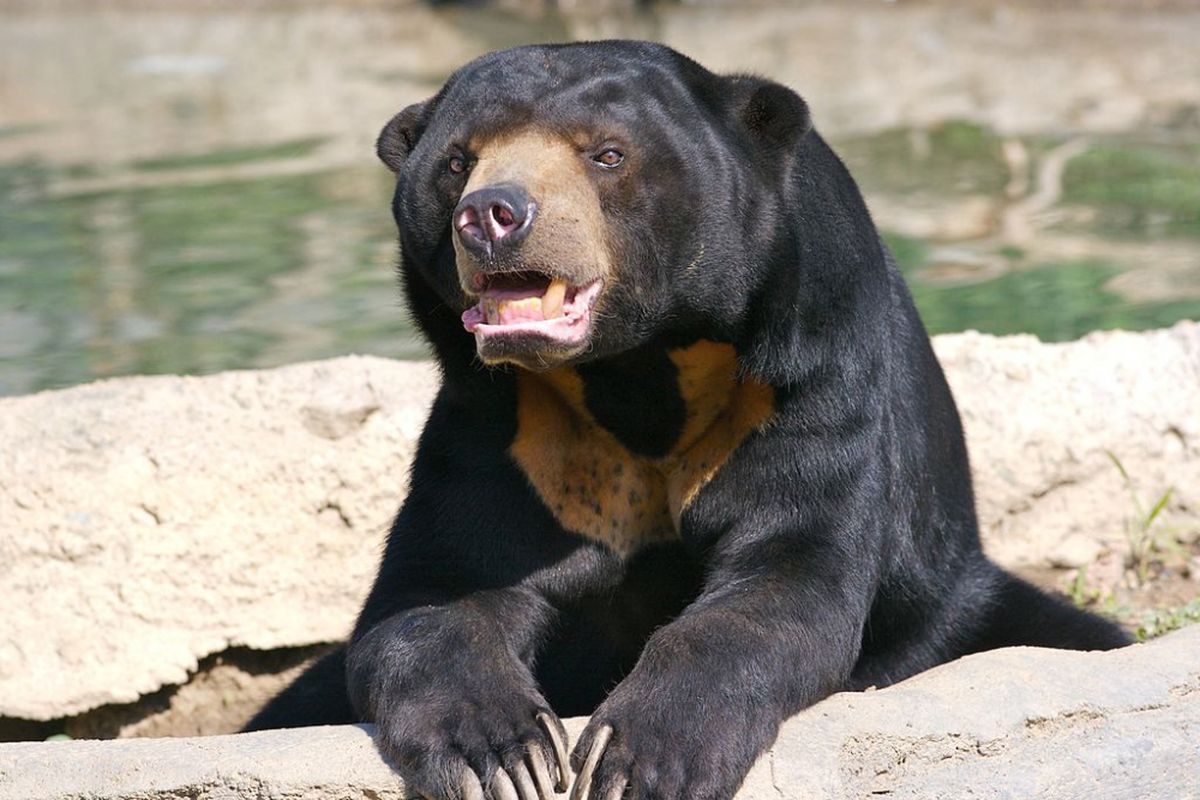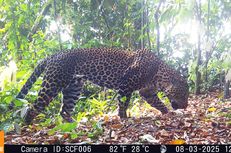Animals Gone Wild: Sun Bears Kills Livestock in Indonesia's Lampung Province

LAMPUNG, KOMPAS.com - Villagers in the western part of Indonesia's Lampung province have been on edge over the past two weeks, after a group of sun bears devoured dozens of their livestock.
Lampung's Nature Conservation Agency [BKSDA] confirmed that sun bears [Helarctos malayanus] are the species involved in the standoff against humans.
"[The sun bears] have been sighted at the villages of Mekar Sari in the [West Lampung] district of Sumber Jaya as well as the village of Mekar Jaya in Surian district," said BKSDA official Hifzon Zawahiri on Sunday.
"Villagers in Mekar Sari Village have seen the sun bear with three of their cubs going to and from the nearby Liwa Nature Reserve. They attributed these carnivores with the slaughter of four goats. "
Also read: Animals Gone Wild: 3-Meter Reticulated Python Captured in Indonesian Housing Complex
On the other hand, Hifzon noted that the sun bear which terrorized livestock in Mekar Jaya is a solitary specimen.
"[The lone] bear intruder of Mekar Jaya village slaughtered seven goats and one cow."
He added that the BKSDA have deployed a Wildlife Rescue Unit (RWU) team to prevent potential conflicts between the bears and villagers. "The WRU team with work together with the police, military and the Liwa Nature Reserve Forest to track down the bears," he asserted.
"The WRU team will also collect data on the losses suffered by the residents of the two villages. The team will also raise awareness about the sun bears' conservation status as a protected species under a 2018 law."
Also read: Animals Gone Wild: 3-Meter Long Cobra Almost Bites Online Taxi Driver
Hifzon also urged the villagers to stand guard every night against the bears and reduce their activities in the forest. He also called on them to carry out additional security measures such as installing lights on the livestock pens and light fires every night.
Also known as the honey bear, the sun bear is found in the tropical forests of Indonesia, Malaysia and other Southeast Asian countries.
The species, which is also the smallest of its kind among bears, is classed as 'Vulnerable' by the IUCN, after it experienced a 35 percent decline of its population over the past three decades.
(Writer: Tri Purna Jaya, Lampung Contributor | Editor: Aprillia Ika)
Dalam segala situasi, KOMPAS.com berkomitmen memberikan fakta jernih dari lapangan. Ikuti terus update topik ini dan notifikasi penting di Aplikasi KOMPAS.com. Download sekarangMore Headlines
19 Javan Leopards and Black Panthers Captured on Camera in West Java
Indonesian Embassy Staff Shot Dead in Peru, Police Probe Contract Killing
President Prabowo Expresses Condolences After Driver Killed by Police Vehicle
Financial Report Reveals Billions in Losses for Indonesia’s High-Speed Rail
Indonesia’s Largest Private Bank Denies Allegations of Manipulation in 2003 Share Sale



































